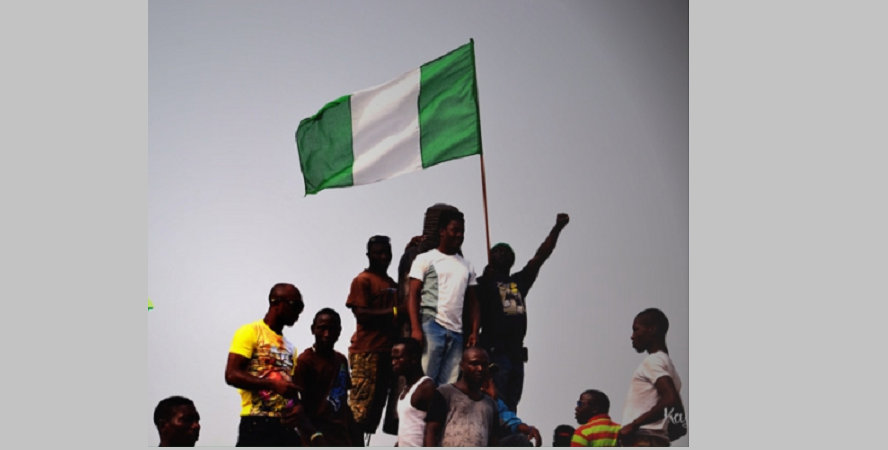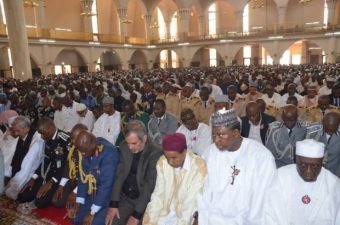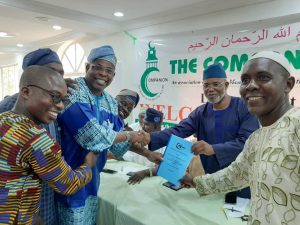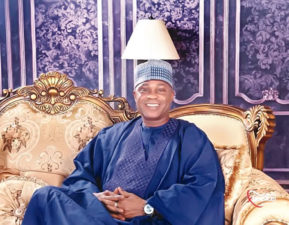“A sagacious government is one which depoliticizes the distribution of dividends of democracy in ownership of the country as one constituency. Altruistically, it pursues non-discriminatory policies which safeguard the interests of all.”
In an article I wrote a few years back titled “After Reading Walter Rodney”, I celebrated an intellectual giant who I always admire for his definition of development.
The Guyanese historian and revolutionary, Walter Rodney who died at the age of 38 in a car bomb explosion is famous globally for the very illuminating book, “How Europe Underdeveloped Africa”, a work that is still shaping the political consciousness of many Africans.
He sees development as a many-sided process beginning from the individual level to the other complex social, political and economic level. Rodney’s all-encompassing definition finds practical elucidation in the UN Sustainable Development Goals. Are these goals too idealistic or utopian? Are the targets too amorphous or unattainable? Is the deadline unrealistic? Were those countries who score highly on a different plane?
What assisted their impressive status? Given similar challenges and resources, couldn’t we have matched them? What were the forces that impeded those who scored low on the MDG progress chart? What are those things that needed to be done? Will they be done?
Now, Nigeria’s fourth experiment in democracy is almost clocking 25 years, long enough to remedy the past failures. These years therefore offer us the opportunity to explain the politics of reform and development in the country. In the next few months, specifically on October 1 this year, the nation will clock 63 years of political independence. Our experience shows that there had been unnecessary muscle-flexing among tiers and arms of government when all should play complementary roles without prejudice to the norms of checks and balances, given the enormous challenges confronting the nation. Between the Federal and State governments in many instances, there is power or jurisdiction contestation while the local governments often claim subjugation under the states. In the same vein, confrontation is not uncommon between the executive and legislative arms of government on areas that ordinarily demand understanding and cooperation.
Instances also abound of corruption and interference in judiciary, and consequently compromise or delay of justice and interpretation of the constitution. More dangerous is the tendency for the politicization of the police, the armed forces and the anti-corruption agencies. If this is the scenario, it would of cause be difficult, if not impossible for development or reform to be facilitated in the country. Simply, we have been playing politics with development in the development policies we enunciate. Or better still, we have concentrated on politics while relegating development. It is this context that we must understand the success or failure of any reform initiative. If any project or agenda must succeed as a tool for national development, it must enjoy ownership of all stakeholders in the Nigerian Project while the Federal Government must also find expression of the Agenda in all the regional development initiatives in the country. This is beyond political affiliation. Therefore, issues of development must never suffer the ills of political partisanship. Consideration for sharing the dividends of democracy must transcend party affiliation. It is not politically strategic to exclude a segment of constituency simply because of unimpressive voting in such areas. In fact the more unpopular a ruling party is in an area, the more the incumbent must be interested in its exclusivist political philosophy and try to address its yearnings.
A sagacious government is one which depoliticizes the distribution of dividends of democracy in ownership of the country as one constituency. Altruistically, it pursues non-discriminatory policies which safeguard the interests of all. Such approach contain the prospects of weakening opposition, while promoting national cohesion or unity.
Indeed, it prepares the ground for transformation and stimulates development through collective ownership of reform projects. An essential feature of this approach to development is transparency or openness, an index that is vital in assuring good governance in any polity. Political parties which form the foundation of government must not only be interested in winning votes, because voting is like a barter. A commodity traded or bartered, if found defective can easily be returned or the buyer does not return to buy from its seller again.
So, any government, produced by election on party basis must be interested in winning citizen hearts, commanding public trust and securing loyalty of diverse stakeholders because in its approach to handling policy issues and public problems, it presents as an inclusive government. In this scenario, such government will find merit in some of the promises and ideas of the opposition and accommodate them in its own policy design and distribution of democratic dividends. It will also factor the problems focussed, the issues framed and mainstreamed and the agenda that the media set in the public sphere.
Remarkably therefore, the public media and the complementary social media have a patriotic duty to facilitate a linkage between the past development efforts and the present one and promote nation-building through the issues and problems they frame or mainstream and the agenda they set for the nation. How far have we fared in this regard? Not really far, one dare conclude. In a polity that our major challenge is the proliferation of fake news and the spread of hate speeches, atmosphere for trust building and national cohesion hardly exists. Consequently, the media have a responsibility to assist in de-politicizing development and democratizing transformation in the news and features, opinions, analyses and focuses, coverage and presentation or publication. It is an imperative that they assist in de-escalating crisis but serve as vehicles for conflict resolution and re-building and rebranding Nigeria, a project now threatened by insecurity.
*Abdulwarees, a fellow of the Chartered Institute of Public Diplomacy and Management, is Deputy Director, Strategic Planning & Corporate Development at Voice of Nigeria.




